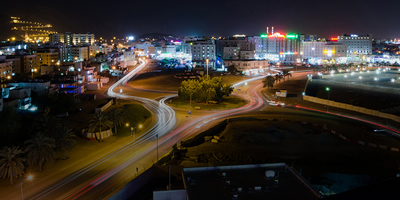Aladdin.Life has announced the beta launch of the world’s first platform combining search, marketplace and customer community for telecom services in the UAE.

Reports and Coverage
Telecom infrastructure is the backbone of Etisalat’s success
Today we have made global achievements in 5G, setting benchmarks for the industry. This was backed by the infrastructure accomplishments made in the past that have complemented the 5G network.
Digital inclusion: is the MENA region there yet?
As technological innovation accelerates towards a more intelligent society, our world is changing every day. Innovations in technology and science have brought us greater convenience and have caused society to evolve but it has also created the digital gap.
Stimulating industries + 5G in the Middle East today
By An Jian, President of Carrier Networks Business Group, Huawei Middle East
There’s enormous excitement for how 5G networks are now being trialed and deployed across the Middle East region—and for good reason. While the roll-out of 5G telecom networks has caught many of the recent headlines, we’re now entering a critical inflection point of not just having 5G capabilities, but actually leveraging that massive potential for economic transformation.
5G’s impact on consumerism
5G, one of the most prominent modern leaps in emerging technology, brings with it the promise of efficiency and real-time services. This highly anticipated 5G wireless network technology is expected to be so powerful that it will enable the mass production of highly anticipated autonomous cars, virtual reality in real time, download speeds which are ten times faster than what we are used to and the list goes on.
Will drones save the day amid the COVID-19 pandemic?
Over the past few years, there’s been much speculation about drones and whether they are an asset or a peril to society. However, when it comes to the recent pandemic which has taken the world by storm, drones are being used for the greater good of humanity.
2020 will be a year of critical decisions for wireless operators in the Middle East
By Femi Oshiga, vice president of service providers for the Middle East and Africa, CommScope
COVID-19: Telcos to the rescue
The rapid increase of coronavirus cases in the world has urged governments to impose lockdown measures whereby malls, shopping centers, churches, mosques, schools and universities were closed and employees were asked to work remotely until further notice. Against this backdrop, a rapid demand on connectivity has risen which has put telcos in the spotlight.
How and why to cloudify
By Heiko Perkuhn and Szymon Lis, managing consultants, Detecon International
The evolution of Oman’s telecom industry
The Sultanate of Oman has established itself as one of the most progressive telecom sectors in the region in terms of liberalization and promotion of competition in recent years. A total of six mobile network operators cater to a population of approximately four million. The market leader is Omantel, part of Oman Telecommunications Company, in which the government owns a 70% stake. It is followed by the Omani Qatari Telecommunications Company known as Ooredoo. Awasr is the third fixed network operator in Oman. The newly announced telecom operator, anchored by Vodafone Group, will bring about an overhaul in the Sultanate's telecom sector when it begins operating in 2020.

















